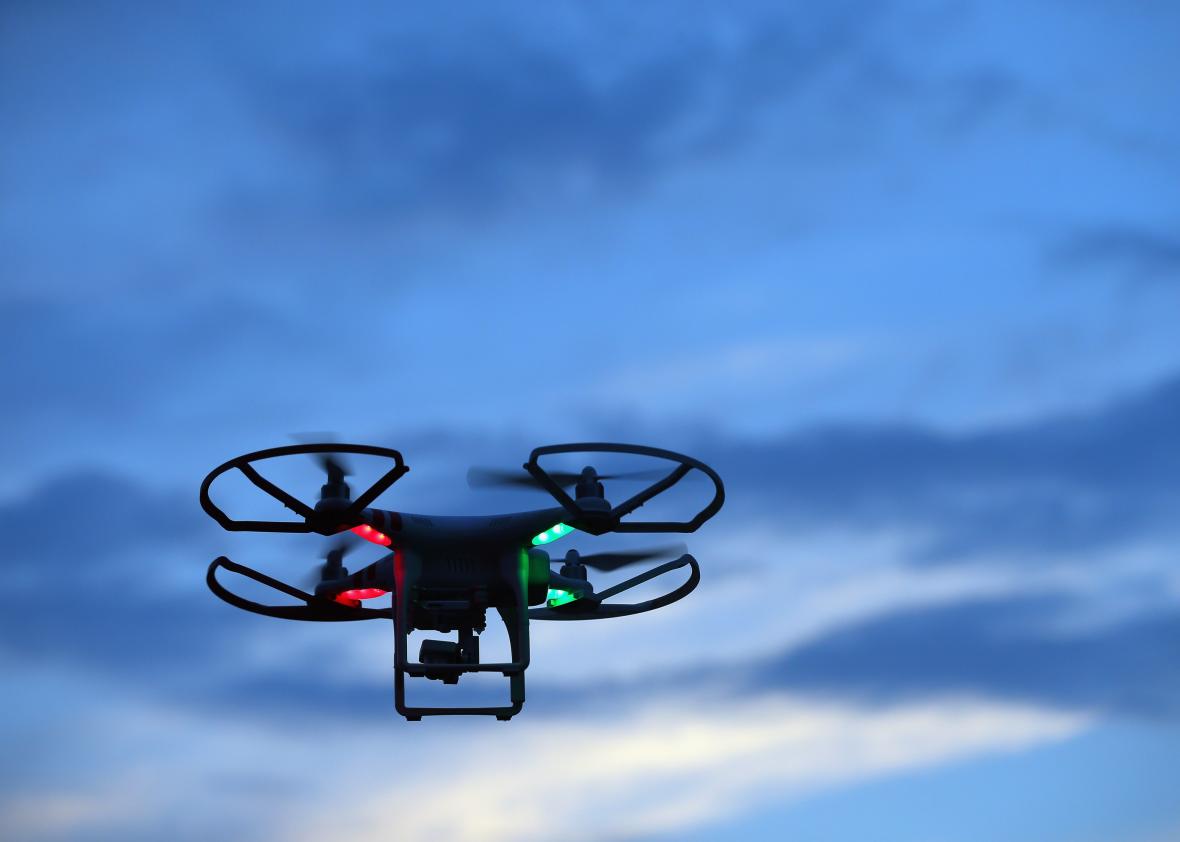FAA Fears That 1 Million Drones Could Be Sold This Holiday Season

Photo by Bruce Bennett/Getty Images
You’re probably getting a drone for Christmas this year, whether you want one or not. Aviation Week reports that, at a recent industry summit, Rich Swayze of the Federal Aviation Administration said that the agency expects up to 1 million unmanned aerial vehicles to be sold during this year’s holiday season. Swayze’s prediction, if true, is simultaneously great and terrible news for the drone industry. It’s great news because, hooray, money! It’s terrible news because some of these drones will be gifted to kids, and idiots, and others who know and care little for safety and decorum. Many drones, though not all of them, are equipped with cameras, and you can easily imagine a million novice pilots, hopped up on Christmas cookies and eggnog, launching their drones to take an uninvited peek at what lies under their neighbors’ trees; you can easily imagine the neighborhood shouting matches that might ensue.
A good chunk of the American public already finds drones very, very annoying, thanks to the reckless behavior exhibited by some amateur drone pilots. Though the FAA counsels drone hobbyists to respect ground-dwellers’ privacy and maintain visual contact with their devices, there is no good way to enforce these standards, and thus they are easily violated by recreational flyers who either don’t know or don’t care about FAA best practices. Heedless hobbyists have made news this year for flying drones near airports, stadiums, wildfires, and hospitals, in blatant disregard for safety protocols and common sense. This blithe behavior has prompted physical violence, angry gunplay, a passel of state and local anti-drone ordinances, and the fear that the actions of some of these early adopters might sabotage the emerging drone industry.
If a million new drones take to the air this winter, how many of them will be used inappropriately? It’s hard to say. As I’ve written before, my sense is that the vast majority of drones are used responsibly and that the few clowns who make the news aren’t representative of the whole. But impressions are sometimes more important than statistics, and it’ll take only a few “Local man flies drone into manger scene, decapitates Baby Jesus” headlines to seriously sour the public on the UAV sector and encourage legislators to pass reactionary laws and policies that might inhibit drone innovation.
What to do? In the absence of comprehensive FAA regulations or other laws that might mandate good behavior, the government is exploring other methods of preempting this potential menace. Oregon Rep. Peter DeFazio, in Aviation Week, called for dronemakers to avert the “irresponsible use of toys” and incorporate geofencing technology that would automatically prevent drones from flying near sensitive areas. But geofencing is no panacea, and, anyway, it’s unlikely that manufacturers will voluntarily heed this call between now and December. Aviation Week also notes that the FAA plans to meet with Walmart “to educate salespeople selling small UAVs on how to inform consumers about operating UAVs safely”: a well-intentioned idea that seems to grossly overestimate Walmart’s commitment to salesmanship and customer service.
In the end, I think, the responsibility lies with you, the harried gift-giver, to think before you buy. Much as you wouldn’t give your alcoholic Uncle Frank a handle of Cutty Sark for Christmas, you shouldn’t buy a drone for someone who you suspect might use it imprudently, like children, or people with “I Can’t Drive 55” tattoos. Consider which of the people on your shopping list are or are not cut out for drone ownership, and do what you can to ensure that you’re giving a reliable machine to a reliable person. Research drones online before you buy them so that you can better differentiate the high-quality models from the buggy ones with flyaway problems. And if you can’t decide whether to give someone a drone or a massage hat from Brookstone, take my advice, and go with the massage hat. No one has ever been arrested for reckless use of a massage hat.
This article is part of a Future Tense series on the future of drones and is part of a larger project, supported by a grant from Omidyar Network and Humanity United, that includes a drone primer from New America.
Future Tense is a partnership of Slate, New America, and Arizona State University.


